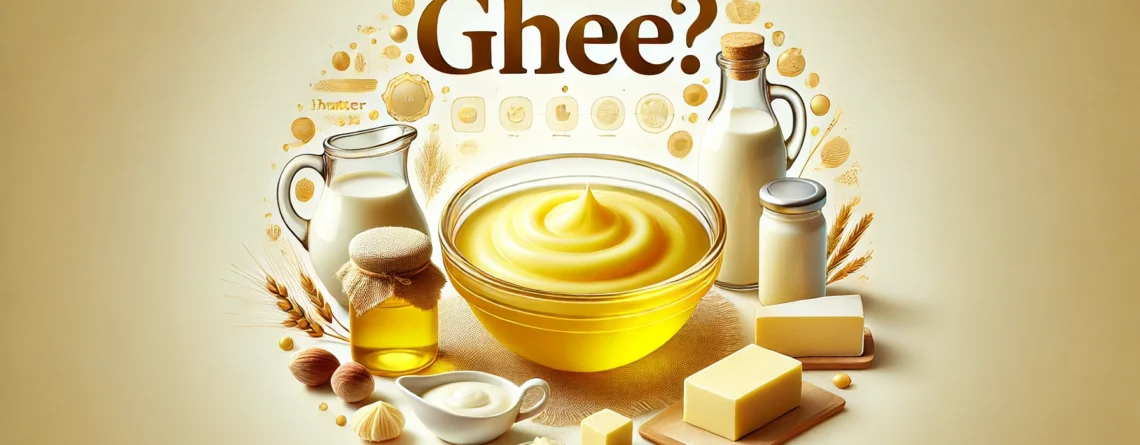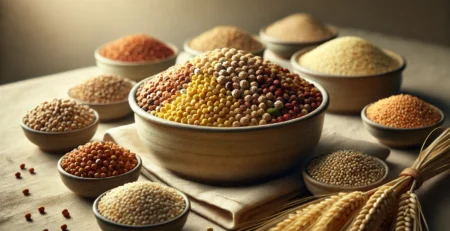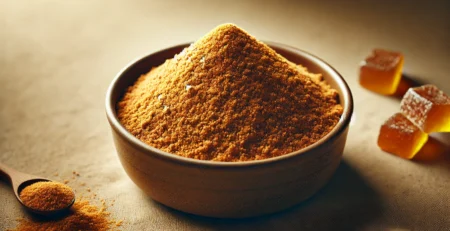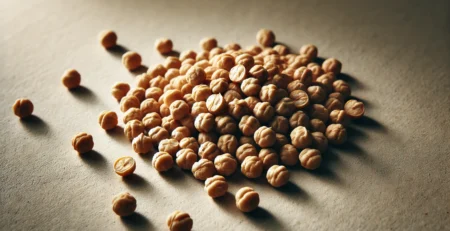What is Ghee?
What Is Ghee? Health Benefits of Ghee
Discover the nutritional powerhouse that is ghee—learn about its origins, health benefits, and why it’s an essential addition to your diet.
Ghee, originating from the Sanskrit word meaning “sprinkled,” is a form of clarified butter where milk fat is separated from the milk solids and water. This ancient cooking fat has been cherished for centuries in Indian and Ayurvedic traditions, not just for its culinary versatility, but for its remarkable health benefits. Here’s why you should consider incorporating ghee into your daily diet:
1. Lactose Friendly
Ghee is ideal for those with lactose intolerance. Since the milk solids are removed during the clarification process, the impurities that typically cause issues are eliminated, making ghee easier to digest. However, it’s always advisable to consult with a healthcare provider before making dietary changes, especially if you have a sensitivity.
2. Doesn’t Spoil Easily
One of the standout features of ghee is its long shelf life. Ghee doesn’t require refrigeration and can last for extended periods without spoiling. In fact, some mixtures are known to remain stable for up to 100 years when stored properly, making it a reliable cooking fat in any kitchen.
3. Promotes Flexibility
Ghee is more than just food; it’s also a tool for enhancing physical well-being. According to Dr. Vasant Lad, a renowned Ayurvedic practitioner, ghee helps lubricate the connective tissues, promoting flexibility. This makes it especially beneficial for those engaged in practices like yoga, where flexibility is key.
4. Rich in Vitamins
Ghee is a nutrient-dense food, packed with fat-soluble vitamins such as A, D, E, and K. These vitamins are crucial for maintaining bone and brain health, as well as supporting a robust immune system. By incorporating ghee into your diet, you can ensure that your body receives these essential nutrients.
5. Healthy Digestive Tract
Ghee plays a significant role in digestive health. It converts fiber into butyric acid, which is beneficial for intestinal bacteria. This not only helps to maintain a healthy digestive tract but also stimulates appetite, leading to better digestion and, potentially, weight loss.
6. Lowers Cholesterol
Despite being a saturated fat, ghee has been shown to reduce cholesterol levels in both the serum and intestines. According to studies, ghee triggers an increased secretion of biliary lipids, which helps lower overall cholesterol levels, making it a heart-healthy choice when consumed in moderation.
7. Higher Smoking Point
Ghee’s high smoking point (250°C or 482°F) makes it one of the best fats for cooking at high temperatures. Unlike other oils that can break down into harmful free radicals when heated, ghee remains stable and safe to use, reducing the risk of harmful smoke inhalation and oxidative stress.
8. Weight Loss Aid
When sourced from grass-fed cows, ghee contains Conjugated Linoleic Acid (CLA), a fatty acid known for its cancer-fighting properties and its ability to aid in weight loss. CLA helps in reducing body fat by promoting the burning of stored fat, making ghee a valuable addition to a weight management plan.
Conclusion: Why Ghee Deserves a Place in Your Diet
Ghee is not just a flavorful addition to your cooking; it’s a nutritional powerhouse with numerous health benefits. From supporting digestive health and flexibility to aiding in weight loss and reducing cholesterol, ghee is a versatile fat that has earned its place in both traditional and modern kitchens. By incorporating ghee into your diet, you can enjoy its rich flavor while reaping the health benefits that have been celebrated for centuries. Always consult with a healthcare provider before making any significant changes to your diet, especially if you have specific health conditions.












